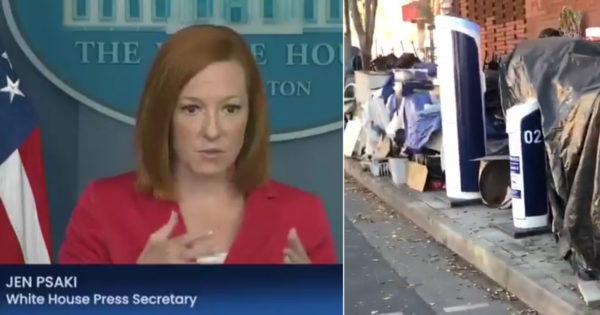
White House spokesperson Jen Psaki announced Monday that the Biden administration is drafting plans to place half a million electric vehicle charging stations in “rural and disadvantaged communities,” and also apparently hopes to run fleets of tens of thousands of “electric school buses” in inner cities. The announcement has been met with incredulity and a fair of mockery online.
“People across the country, people who care deeply about addressing our climate crisis, know the components of what are in this package, which the President considers a down payment, not the end, a down payment,” Psaki said, adding, “So, five hundred thousand electric vehicle charging stations nationwide, that’s what this would help support, with a focus on our highways and on rural and disadvantaged communities.” Psaki also claimed the Biden administration wants to buy “thirty-five thousand electric schoolbuses.”
Jen Psaki: 500,000 electric vehicle charging stations are needed for "rural and disadvantaged communities." pic.twitter.com/qgH3CdLpVr
— Townhall.com (@townhallcom) June 28, 2021
Critics were quick to point out that while electric vehicle charging stations already do exist in many “disadvantaged communities,” they have not been particularly well-received.
Charging stations in disadvantaged communities pic.twitter.com/LDOcfoACqg
— Kevin Dalton (@NextLAMayor) June 28, 2021
Psaki did not specify whose vehicles would be charged at the charging stations located in disadvantaged communities. The average consumer cost for a new electric vehicle, or EV, remains high, well above the average yearly income of many poor jurisdictions.
Car And Driver magazine reported in 2020 that the average cost for an EV remained over $19,000 more than its gasoline counterpart, at $55,600.